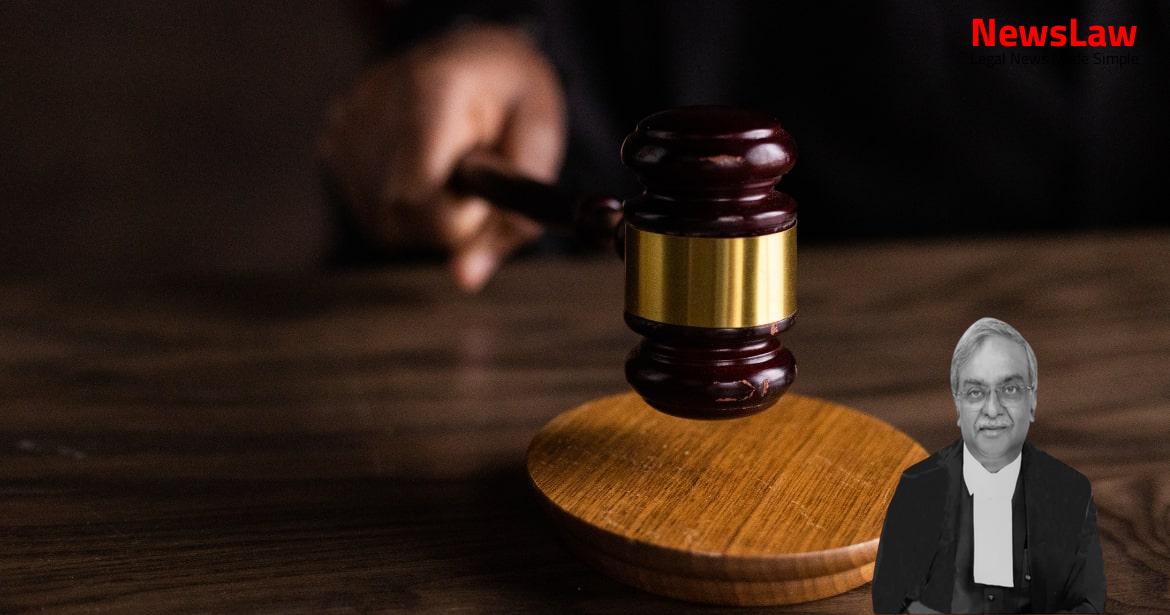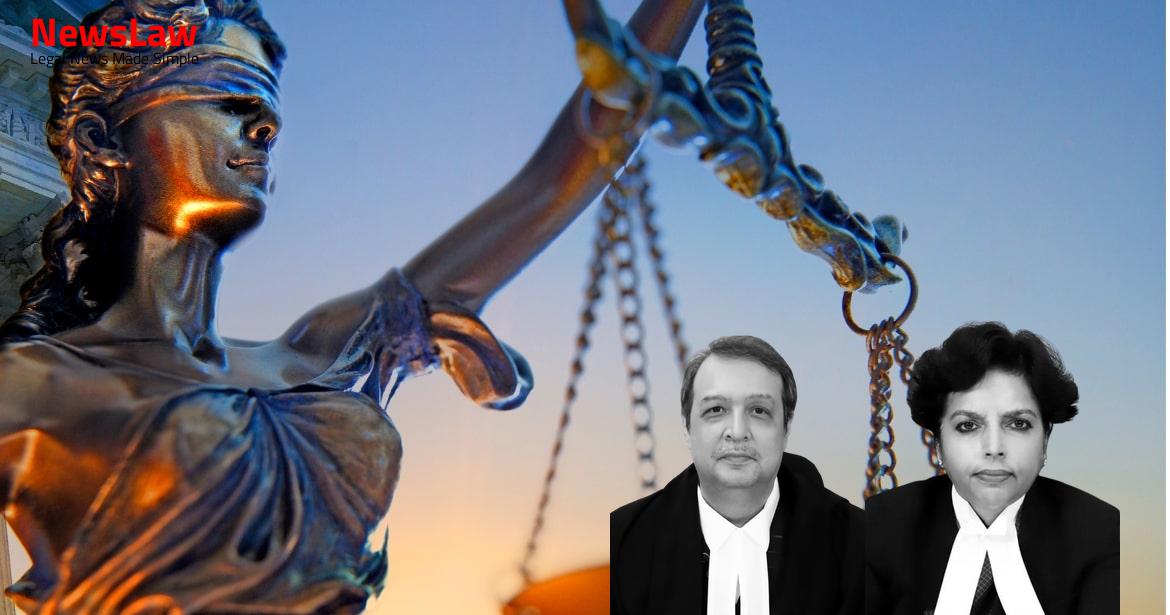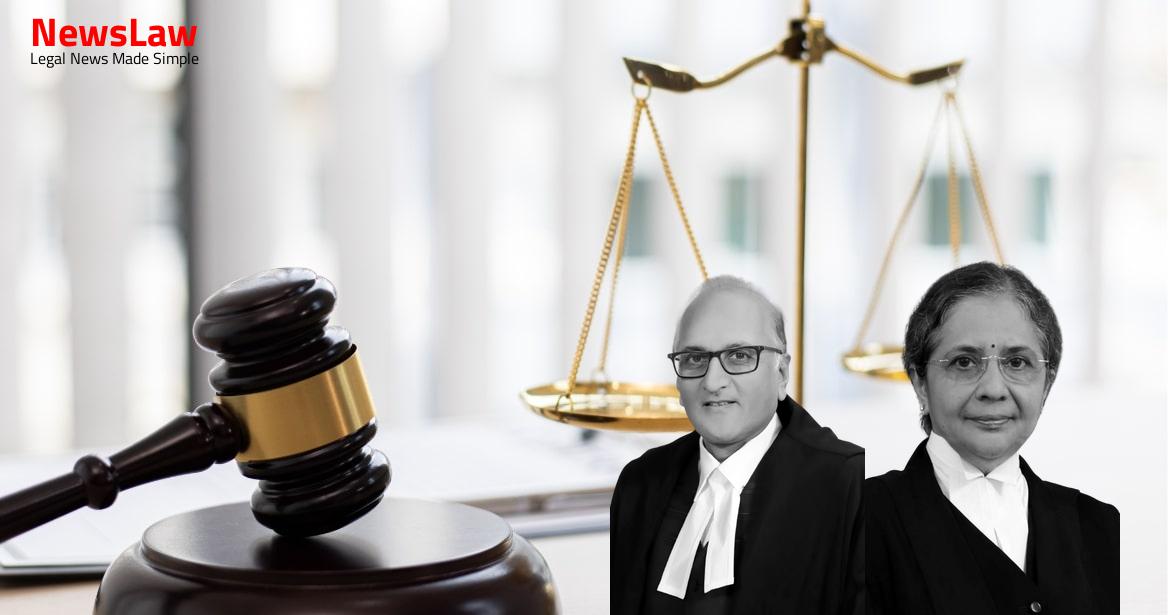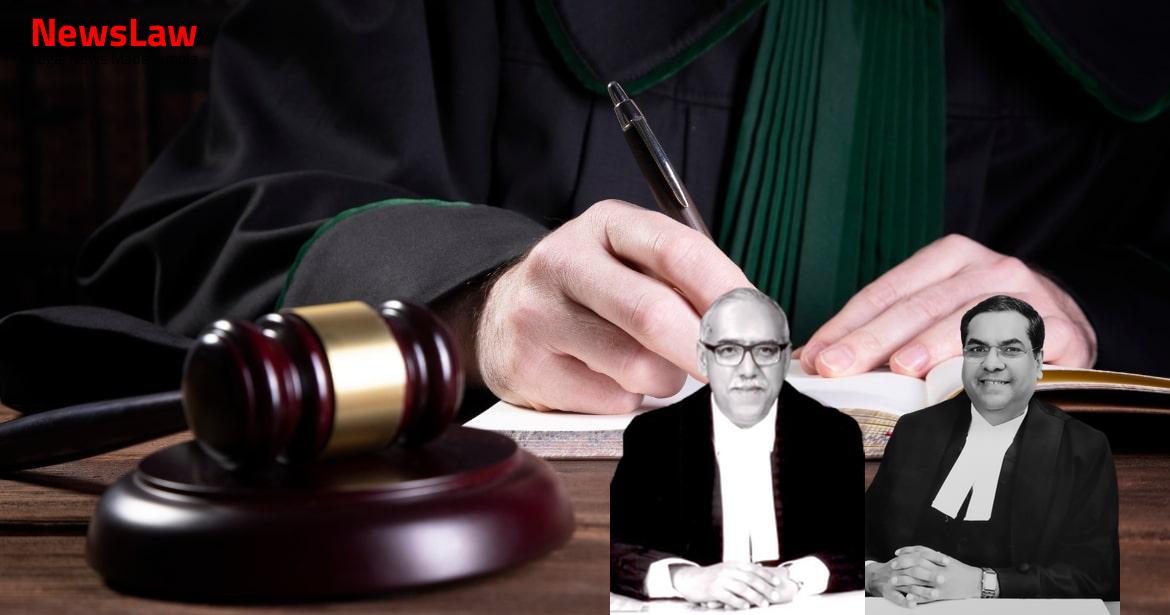In the case of Rehan Ahmed v. Akhtar Un Nisa & Ors., the Supreme Court of India addressed the verification of a compromise application between the petitioner, Rehan Ahmed, and the respondent, Akhtar Un Nisa. The Court’s detailed judgment clarifies the requirements under Order XXIII Rule 3 of the CPC for recording and verifying compromises. This landmark decision will have implications for future legal proceedings involving compromise agreements.
Facts
- The High Court incorrectly held that the provisions of Order XXIII, Rule 3 of the CPC were not adhered to by the Trial Court.
- The settlement/compromise between the Plaintiff and Defendant No.1 regarding Defendant No.2 vacating the third story of the house and the transfer of rent notes in favor of the plaintiff could not have been accepted by the Trial Court.
- There was no decree against Saeeduddin, so the Decree holder had no right to get possession of the property held by Saeeduddin.
- The tenants of Saeeduddin in the disputed property were actually tenants of Akhtar Un Nisa.
- The Executing Court dismissed objections filed by Akhtar Un Nisa under Section 47 CPC on 03.05.2007.
- The appeal challenges the Rajasthan High Court’s judgment dated 21.03.2014 in S.B. Civil Revision Petition where the revision under Section 115 CPC was allowed, setting aside the Executing Court’s order dated 03.05.2007.
- The High Court found the decree dated 09.05.1979 in Suit No.13/72 to be inexecutable and a nullity, allowing objections under Section 47 CPC.
- Defendant No.2 admitted he did not have the right to sell the disputed property.
- Defendant No.1, the real owner, now admits to the agreement, clearing the way for a decree.
- Defendant No.1 to vacate the third floor for Plaintiff-Rehan Ahmed.
- Plaintiff and Defendant No.1 to share registry costs equally.
- Compromise reached in 1978 during the suit.
- Defendant No.3 relinquished rights to the property in favor of Plaintiff.
- Agreement to sell executed in 1967, with a total consideration of Rs.40,000.
- Objections under Section 47 CPC raised but later dismissed.
- Property description includes a house and five shops with municipal numbers 52 to 57.
- Defendant No.1’s failure to execute sale deed led Plaintiff to initiate execution proceedings.
- Tenant rent notes to be transferred in favor of Plaintiff.
- Cost of the suit to be borne by respective parties.
- Defendant No.1 to facilitate physical possession to Plaintiff before registration.
- House and shop description included in the compromise deed.
- Defendant No.1 was supposed to execute the Sale Deed by a specified date.
- Responsibility for NOC reception lies with Defendant No.1.
- Detailed property boundaries and descriptions provided.
- Plaintiff’s agreement to pay half of the registration cost to Defendant No.1.
- Verification of compromise requested for decree issuance.
Also Read: Judgment by Supreme Court of India in the Criminal Appeals of Chandra Kumar and Rishi Kumar
Analysis
- The compromise between Plaintiff, Gulam Mohiuddin, and Defendant No. 1, which was reached on 11.05.1978, underwent procedural delays in verification before the Court due to various adjournments.
- On 09.05.1979, a fresh compromise application with identical terms was submitted and signed by both parties after the original one could not be located in the court records.
- The Trial Court, on 09.05.1979, finally recorded and verified the compromise application fulfilling all requirements of Order XXIII Rule 3 of CPC.
- Defendant No. 2’s limited rights in the property were also established through the compromise signed and verified by Defendant No. 2 himself.
- The High Court had previously dismissed objections raised by General Tarik, legal heir of Defendant No. 2, regarding the execution proceedings, affirming Defendant No. 2’s lack of ownership rights over the property.
- The Trial Court correctly verified and recorded the compromise on 09.05.1979, considering Plaintiff and Defendant No. 1 as the only necessary parties due to Defendant No. 1 being the sole owner of the property.
Also Read: Supreme Court Judgement: State of Uttar Pradesh vs. Vivek Pal and Punit Pal
Decision
- The appellant-plaintiff’s argument was found to have merit by the Court.
- The Executing Court rightly rejected the objections under Section 47 CPC filed by Smt. Akhtar Un Nisa.
- The appeal was allowed and the impugned judgement of the High Court was set aside.
- The Executing Court’s order dated 03.05.2007 was restored.
- The objections filed by Smt. Akhtar Un Nisa under Section 47 of the CPC were rejected.
- Subsequent appeals before the High Court, including a Special Leave Petition to this Court, were dismissed.
Also Read: Rajasthan vs Hisar: Supreme Court Quashes FIR and Imposes Costs
Case Title: REHAN AHMED (D) THR. LRS. Vs. AKHTAR UN NISA(D) THR. LRS (2024 INSC 329)
Case Number: C.A. No.-005218-005218 / 2024



